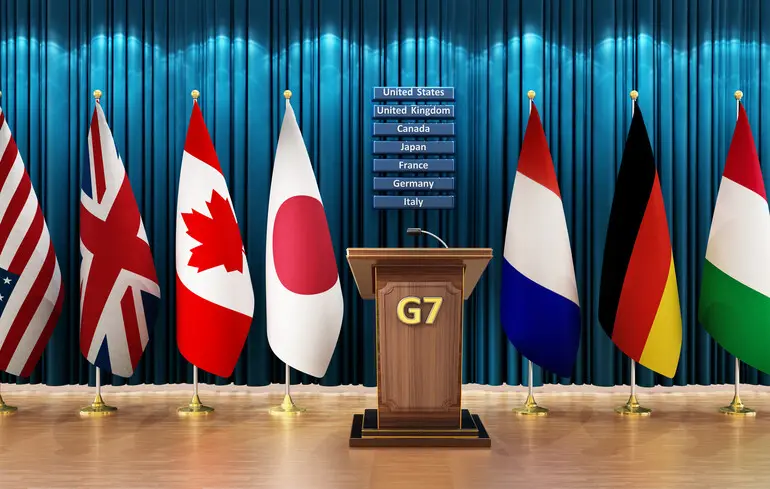G7 Countries Strengthen Sanctions Against Russia: Global Economic Implications and Strategic Actions

In early October 2025, the G7 nations officially announced their intentions to intensify international pressure on Russia in response to its aggressive military policies and efforts to circumvent sanctions imposed by the global community.
During a virtual meeting, finance ministers from these seven leading countries emphasized that oil remains the main financial resource of the Kremlin, enabling it to fund the war against Ukraine and sustain military operations.
They declared plans to significantly reduce Russian oil exports and cut back their own energy imports from Russia, gradually moving toward complete energy independence.Additionally, Taiwan, despite supporting Ukraine and being an ally, has become the largest importer of Russian oil, posing new challenges to global energy security.
The G7 statement outlined plans to implement comprehensive trade restrictions, including tariffs, import and export bans, and sanctions targeting countries and entities that financially support Russia’s military efforts.While specific countries were not named in the document, the United States has previously called for sanctions against buyers of Russian oil, particularly India and China, which continue to increase their purchases despite Western pressure.
The U.S.
administration refrained from imposing new tariffs on Chinese imports but intensified customs inspections and enforcement actions against India.Moreover, the G7 countries emphasize that their strategy encompasses not only energy but also finance, the military-industrial complex, special economic zones, and profitable companies linked to Russia’s war machine.
This comprehensive approach aims to cut off all funding sources for Russian aggression and punish those violating sanctions.A key point in the declaration is the commitment to utilize the ‘full value’ of frozen Russian sovereign assets located within their jurisdictions to support Ukraine and achieve a lasting peace.
Ministers also acknowledged that earlier measures, including IMF programs and the expedited ERA Loans mechanism, have helped Ukraine withstand the ongoing conflict.However, the escalation of Russian actions — airspace violations, increased attacks on civilians, and destruction of state and diplomatic facilities — necessitate more decisive international responses.
Delegates agreed that it is time for a substantial, coordinated escalation to strengthen Ukraine’s resilience and significantly limit Russia’s ability to wage war.
The next discussion of specific measures is scheduled for the annual IMF and World Bank meetings in Washington on October 15, 2025, where additional trade and financial restrictions against supportive countries and entities will be considered.Meanwhile, India continues to increase its imports of Russian oil, disregarding U.S.
sanctions, driven by economic motives.
Experts warn that this trend has profound global implications for the future of the world energy balance.

